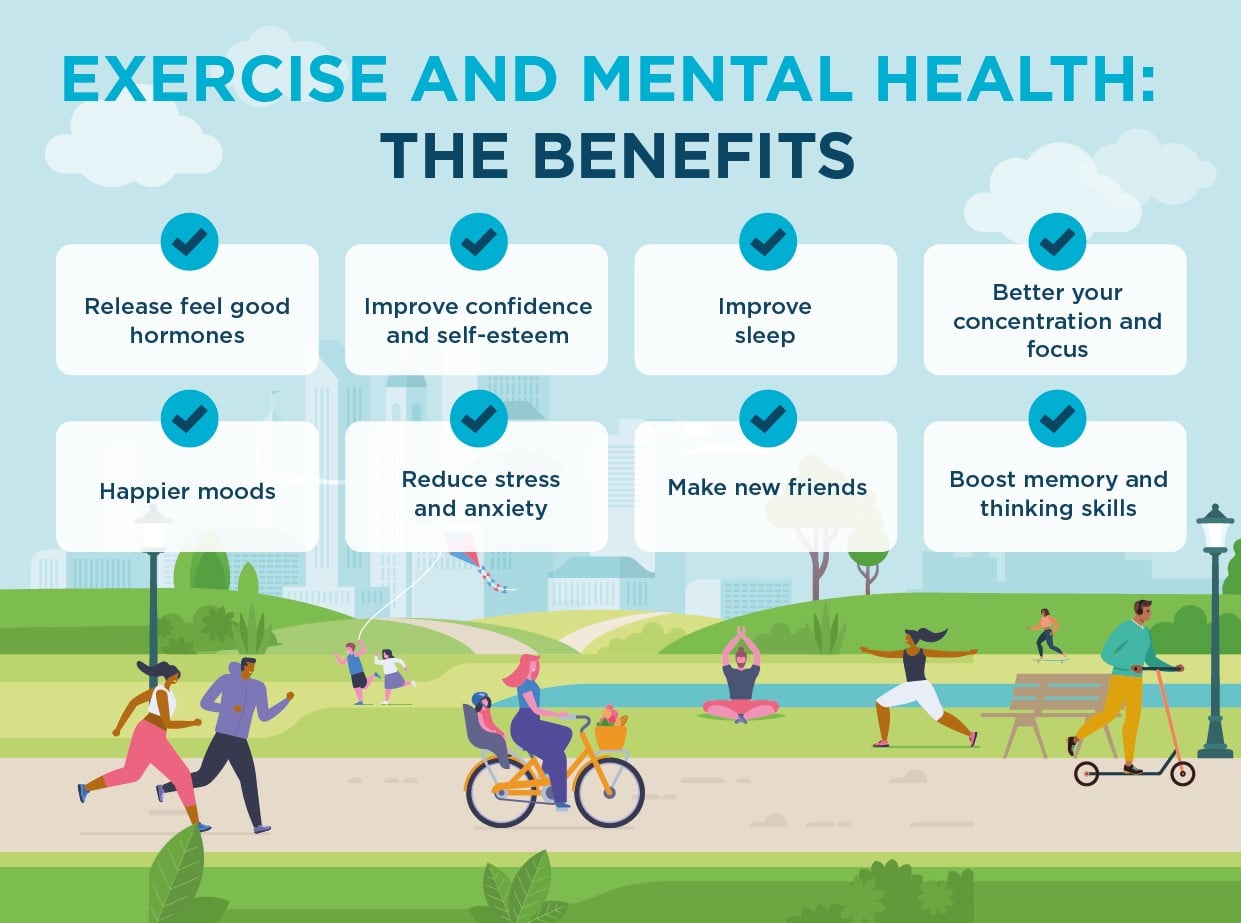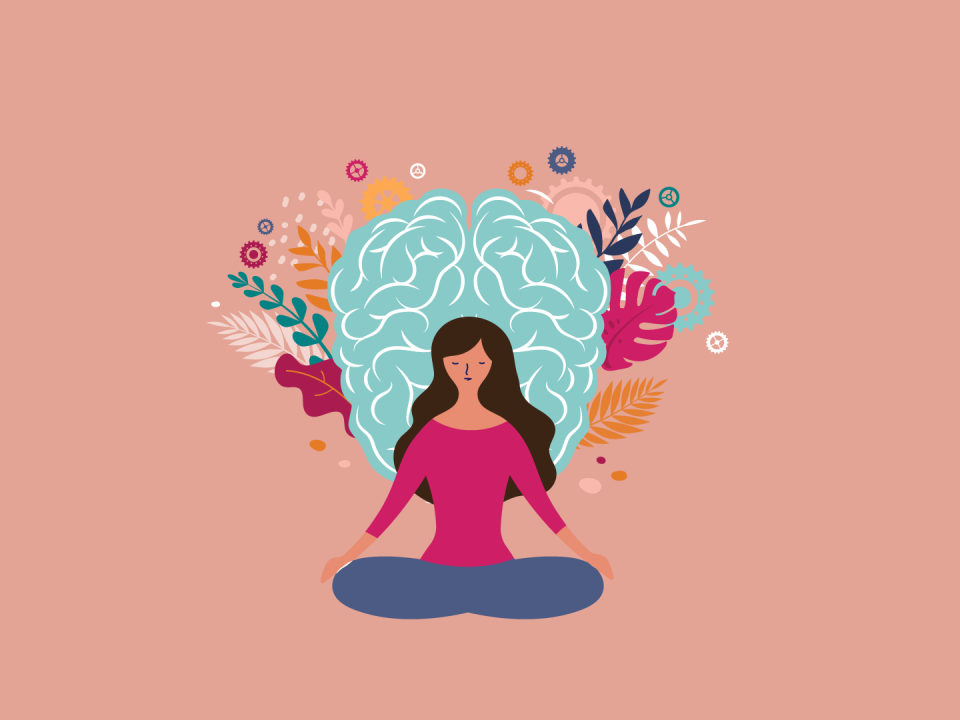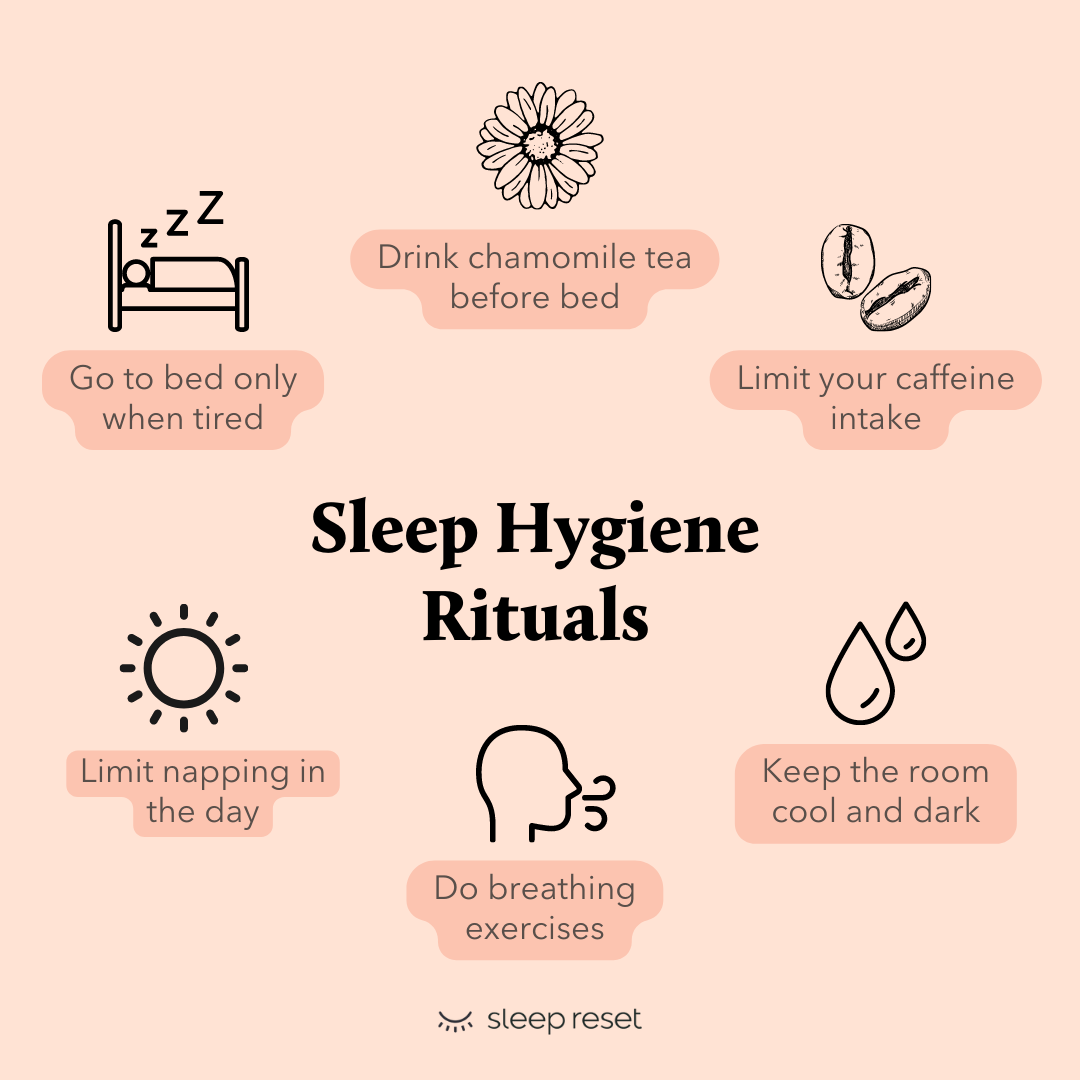Regular exercise isn’t just good for your physical health; it’s also incredibly beneficial for mental health. Physical activity triggers the release of endorphins, the “feel-good” chemicals that help reduce stress and improve mood. Exercise can also boost self-esteem, reduce symptoms of anxiety, and improve focus. Both moderate aerobic exercises, like walking or cycling, and strength training can support mental well-being. This post explains the mental health benefits of exercise and offers tips on incorporating it into your routine.
- Endorphin Release: Exercise boosts endorphin levels, which can help reduce stress and anxiety and elevate mood.
- Improved Self-Esteem: Achieving fitness goals and feeling stronger can lead to increased self-confidence.
- Enhanced Cognitive Function: Physical activity promotes better focus and mental clarity, benefiting both work and study.
- Social Interaction: Group activities like classes or sports offer social benefits that can reduce feelings of loneliness.
- Stress Relief: Activities like yoga and walking in nature reduce cortisol levels, helping you feel more relaxed.


